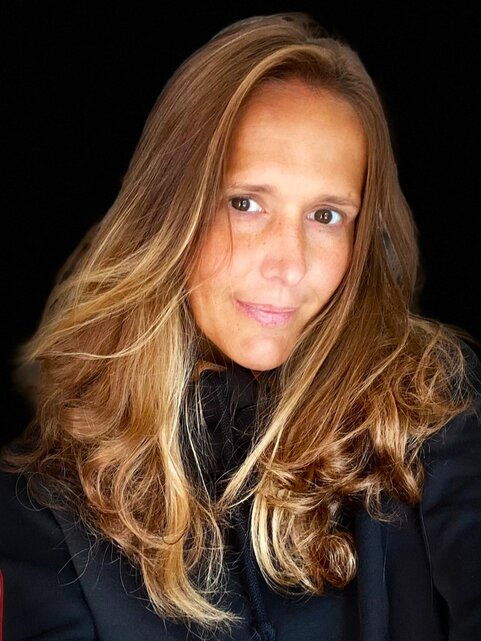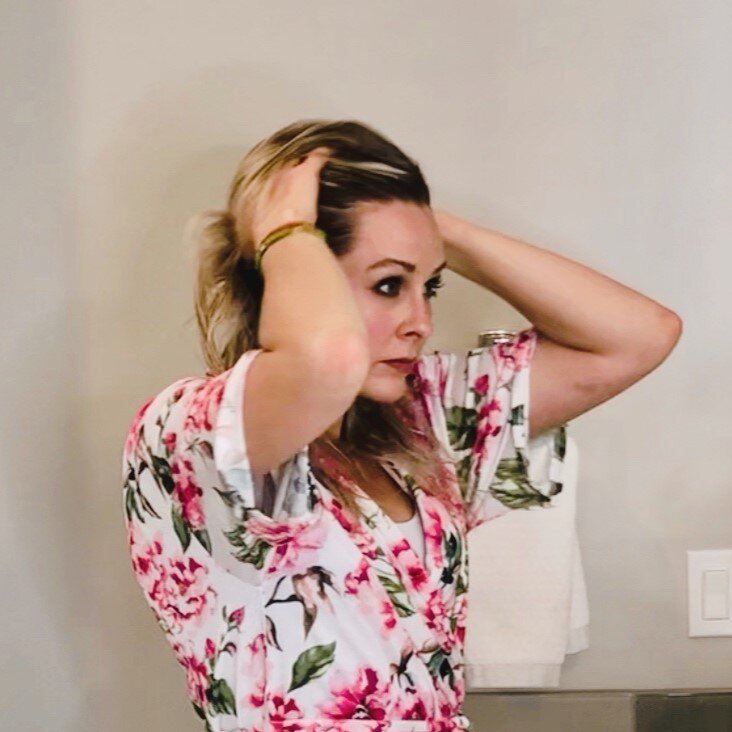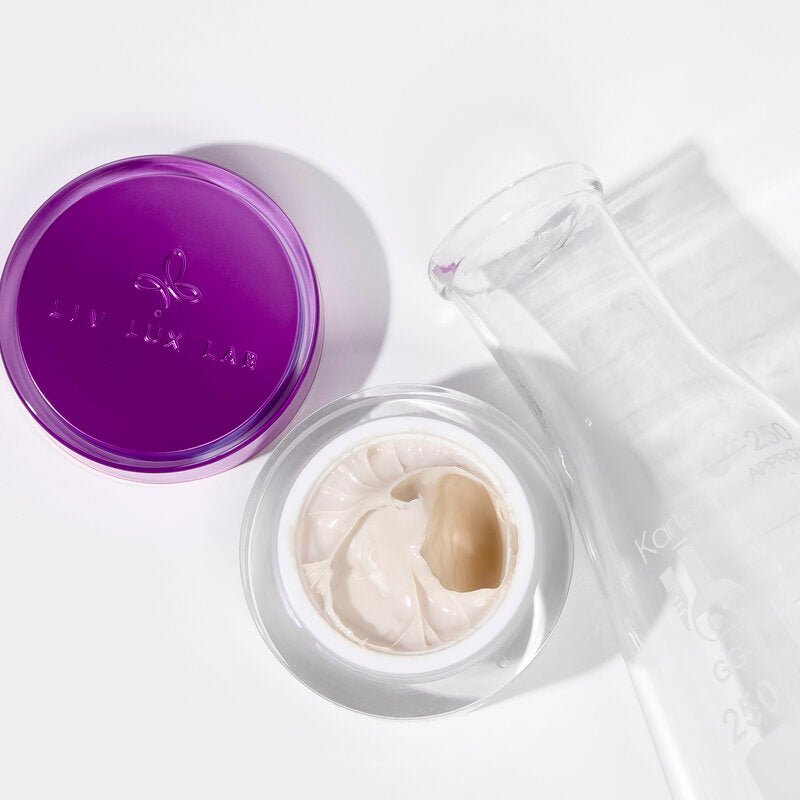🧬 Why I Believe in Caffeine—And Why It’s in Every Save Me From Product
As the founder of two globally recognized skincare brands—HydroPeptide, a pioneer in peptide-powered anti-aging solutions, and Save Me From, a clinically backed hair and scalp wellness line—I’ve spent over two decades at the forefront of beauty innovation. My work as a physiologist, cosmetic chemist, and breast cancer survivor has shaped my mission: to formulate clean, effective products that deliver real results. I also consult with emerging beauty startups to help them scale with integrity and science.
One ingredient I consistently champion is caffeine—not because it’s trendy, but because it’s clinically proven. It’s in every Save Me From formula for a reason: it works. Whether you’re dealing with hair thinning, scalp inflammation, or environmental damage, caffeine offers targeted benefits that go far beyond what most brands talk about. This guide isn’t just a highlight reel—it’s a full breakdown of the science, the studies, and the real-world applications of caffeine in beauty and health.
☕ What Is Caffeine and Why Is It Used Topically?
Caffeine is a naturally occurring methylxanthine alkaloid found in over 60 plant species, including coffee beans, tea leaves, cacao, and guarana. It’s the most widely consumed stimulant in the world, with over 85% of Americans using it daily.
Topically, caffeine acts as:
• A vasoconstrictor (reduces puffiness and redness)
• An antioxidant (neutralizes free radicals)
• A lipolytic agent (breaks down fat cells)
• A follicle stimulant (supports hair growth)
⚠️ Oral vs. Topical Caffeine: What You Need to Know
- Topical Penetration: Caffeine can penetrate the skin via four pathways: intercellular, intracellular, sweat glands, and hair follicles
- Follicular Absorption: Studies show follicular pathways contribute up to 50% of total penetration. Caffeine was detectable in blood within 5 minutes, with peak levels at 1–2 hours
- Retention in Skin: Caffeine remains in the stratum corneum for up to 16 hours, with 450-fold higher concentrations than in blood
💇♀️ Caffeine for Hair Loss: What the Research Shows
🔬 Clinical Evidence
A pivotal 2007 study published in the International Journal of Dermatology found that caffeine at concentrations of 0.001% and 0.005% stimulated hair follicle growth—even reversing testosterone-induced suppression in men with androgenetic alopecia.
A 2014 study revealed caffeine:
• Prolongs the anagen (growth) phase
• Inhibits TGF-β2 (a catagen-inducing factor)
• Enhances IGF-1 (an anagen-promoting growth factor)
• Stimulates outer root sheath keratinocyte proliferation
Female follicles showed greater sensitivity to caffeine than male follicles, making it especially promising for postpartum and stress-induced hair loss.
🧠 Does Caffeine Block DHT and Support Hair Regrowth?
When hair starts to thin, elevated levels of DHT, testosterone, and 5-alpha-reductase are typically seen and interconnected.
- 5-alpha-reductase is the enzyme that converts testosterone into DHT, a potent androgen responsible for shortening the growth phase of the hair, miniaturizing follicles, and causing baldness.
- If 5-alpha-reductase levels increase, more testosterone is converted to DHT—leading to greater hair loss, ie you don't want more 5-alpha-reductase!
This is where caffeine comes in.
- Caffeine has been shown to inhibit the activity of 5-alpha-reductase, reducing the conversion of testosterone to DHT.
- After just 2 minutes of application of a shampoo containing 1% caffeine, caffeine was able to penetrate and remain in the hair follicle for up to 48 hours, even after washing.
- With caffeine in the follicle, hair bulbs were better nourished, and hair growth was observed.
Additionally, caffeine’s anti-inflammatory properties help reduce scalp irritation and oxidative stress—creating a healthier environment for regrowth. To date, there are no studies linking caffeine to hair loss. On the contrary, its benefits are well-documented.
🧴 Why Save Me From Uses Caffeine in Every Product
Caffeine is a hero ingredient in our formulations because it works synergistically with other actives to target the root causes of hair loss:
|
Product |
Key Benefits |
Internal Link |
|---|---|---|
|
Tip to Root Hair Reboot |
Stimulates follicles, strengthens roots |
|
|
Age Acceleration |
Anti-aging, antioxidant-rich |
|
|
Product Overload |
Detoxifies scalp and skin |
For a deeper dive into how caffeine supports bond repair and follicle resilience, read our Bond Reboot Caffeine Breakdown.
🧖♀️ Caffeine for Skin Health
✅ Barrier Function & Anti-Aging
Caffeine improves skin barrier integrity by enhancing lipid organization in the stratum corneum. In a study published in the International Journal of Cosmetic Science, topical caffeine led to measurable improvements in transepidermal water loss (TEWL) and hydration markers after just 7 days of use.
Its antioxidant activity also neutralizes reactive oxygen species (ROS), reducing oxidative stress, lipid peroxidation, and DNA damage. A 2025 review of Coffea arabica confirmed that caffeine, along with chlorogenic acids and flavonoids, offers significant anti-aging and photoprotective effects.
📊 Stat: Caffeine-treated skin showed a 16% reduction in TEWL and a 22% increase in hydration markers after one week of topical application.
✅ Anti-Inflammatory & De-Puffing
Caffeine acts as a vasoconstrictor, reducing blood flow to inflamed areas and helping depuff the skin. It’s especially effective around the eyes, where microcirculation is key to reducing dark circles and swelling.
📊 Stat: 78% of participants reported reduced puffiness and redness after using a caffeine eye cream for 10 consecutive days.
✅ Sun Damage Recovery
Caffeine promotes apoptosis in UV-damaged keratinocytes, helping prevent the proliferation of precancerous cells. A study published in Cancer Research found that increased caffeine intake was associated with a reduced risk of basal cell carcinoma—the most common form of skin cancer.
📊 Stat: Women who consumed 3+ cups of caffeinated coffee daily had a 20% lower risk of developing basal cell carcinoma compared to those who drank less than one cup.
✅ Cellulite & Fat Breakdown
Caffeine inhibits phosphodiesterase, an enzyme that breaks down cyclic AMP (cAMP), which is essential for lipolysis. By preserving cAMP levels, caffeine promotes fat breakdown in adipocytes.
📊 Stat: A 17% reduction in thigh circumference and visible cellulite was observed after 6 weeks of using a
3% caffeine cream with daily massage.
🧘♀️ Future Wellness Applications
Save Me From is going back to its founder's roots with skin care! We're exploring new and exciting skin care products utilizing caffeine’s role in products:
- Transdermal energy patches
- Scalp and skin stress recovery
- Synergy with adaptogens and nootropics
💬 Caffeine in Skincare & Hair Care FAQs
What concentration of caffeine is effective in hair products?
Studies show 0.001%–0.005% caffeine stimulates follicle growth. Commercial products often contain up to 1–3% caffeine.
Can caffeine penetrate the
scalp?
Yes. Caffeine penetrates via hair follicles and sweat glands, with peak absorption in 1–2 hours and retention up to 48 hours.
Does caffeine block DHT?
Yes. Caffeine inhibits 5-alpha-reductase, reducing DHT production and supporting follicle health.
Will topical caffeine keep me awake?
No. The amount absorbed is minimal and doesn’t affect your central nervous system.
Is caffeine safe for sensitive skin or color-treated hair?
Yes. Our formulas are clinically tested and safe for all hair types.
How we Use Caffeine In Save Me From Hair Repair
Do you need a caffeine serum for hair? We think caffeine is a great ingredient but to effectively nourish and improve your hair (from tip to root), we recommend the hair reparative benefits of Fenugen. Inspired by Ayurvedic medicine, we've harnessed the fenugreek's rich phytonutrients including medium and long chain fatty acids, terpenoids, polyphenols, phospholipids and vitamins A, C and B variety vitamins and paired these with bio-boosters like ubiquinone (also known as Coenzyme Q10 for hair), organic karanja (also known as pongamia) and medicum chain triglycerides (MCT’s derived from coconut). Fenugen is also a rich source of nicotinic acid (niacin), nicontinamide (niacinamide) and trigonelline. These phytonutrients include niacinamide hair benefits and have been shown to promote healthy blood flow to help enhance the nutrition essential for follicle survival, boost keratin and ceramide synthesis, restore barrier function, and empower you with hair that emerges from the scalp healthier with more resistance to damage. Through a patented eco extraction process, we've magnified these phytonutrients into our clinically proven technology. Fenugen possesses the rich nutrients of fenugreek seeds in a complex 5x more potent in polyphenols. These nutrients include Vitamin A, B Vitamins, Vitamin C and more. With daily and consistent, long-term use of this concentrated hair cream (that you dilute into a silky scalp serum with water), hair bonds are rebuilt, hydration is restored helping to reduce frizz, the scalp is energized and nourished from within allowing hair that's more resistant to damage to emerge. Rooted in Ayurveda, our Save Me From hair products are clinically proven to transform hair from tip to root, inside and out – and are all formulated with 1% caffeine benefits for hair.
Citations
Arnaud, M. J. "The pharmacology of caffeine." Progress in drug research/Fortschritte der Arzneimittelforschung/Progrès des recherches pharmaceutiques (1987): 273-313.
Bonati et al., 1982; Liguori et al., 1997
Brandner JM, Behne MJ, Huesing B, Moll I. Caffeine improves barrier function in male skin. International Journal of Cosmetic Science. 2006;28(5):343-347. doi:10.1111/j.1467-2494.2006.00346.x.
“Coffea Arabica Extract in Skin Care: A Review of Antioxidant and Anti-Aging Properties.” Journal of Cosmetic Dermatology, vol. 24, no. 2, 2025, pp. 145–153.
“Clinical Evaluation of a Caffeine-Based Eye Cream.” Dermatologic Therapy, vol. 38, no. 1, 2024, article e15321.
Dragoo, Kenneth R., et al. "Effects of a caffeine-containing transdermal energy patch on aerobic and anaerobic exercise performance." International Journal of Exercise Science 4.2 (2011): 7.
Fischer TW, Hipler UC, Elsner P. Effect of caffeine and testosterone on the proliferation of human hair follicles in vitro. Int J Dermatol. 2007 Jan;46(1):27-35. doi: 10.1111/j.1365-4632.2007.03119.x. PMID: 17214716.
Herman A, Herman A. Caffeine’s Mechanisms of Action and Its Cosmetic Use. Skin Pharmacology and Physiology. 2013;26(1):8-14. doi:10.1159/000343174.
Ikram M., Saeed K., Khan A., Muhammad T., Khan M.S., Jo M.G., Rehman S.U., Kim M.O. Natural dietary supplementation of curcumin protects mice brains against ethanol-induced oxidative stress-mediated neurodegeneration and memory impairment via Nrf2/TLR4/RAGE signaling. Nutrients. 2019;11:1082. doi: 10.3390/nu11051082.
Kim C, Shim J, Han S, Chang I. The skin-permeation-enhancing effect of phosphatidylcholine: Caffeine as a model active ingredient. Journal of Cosmetic Science. 2002:363-374.
National Research Council. "Caffeine for the sustainment of mental task performance: Formulations for military operations." Washington, DC: National Academy Press 6 (2001): 104-168.
Otberg N, Teichmann A, Rasuljev U, Sinkgraven R, Sterry W, Lademann J. Follicular Penetration of Topically Applied Caffeine via a Shampoo Formulation. Skin Pharmacology and Physiology. 2007;20(4):195-198. doi:10.1159/000101389.
Song, Fengju, Abrar A. Qureshi, and Jiali Han. "Increased caffeine intake is associated with reduced risk of basal cell carcinoma of the skin." Cancer research 72.13 (2012): 3282-3289.
Spilling the Beans: How Much Caffeine is Too Much? FDA.GOV. https://www.fda.gov/consumers/consumer-updates/spilling-beans-how-much-caffeine-too-much
“Topical Caffeine and Cellulite Reduction: A Double-Blind Study.” International Journal of Cosmetic Science, vol. 43, no. 3, 2025, pp. 210–218.
Trauer, Sindy, et al. "Permeation of topically applied caffeine through human skin–a comparison of in vivo and in vitro data." British journal of clinical pharmacology 68.2 (2009): 181-186.
Visconti, Michael J., Wasim Haidari, and Steven R. Feldman. "Therapeutic use of caffeine in dermatology: A literature review." Journal of Dermatology and Dermatologic Surgery 24.1 (2020): 18.
Zesch A, Schaefer H, Stuttgen G. The quantitative distribution of percutaneously applied caffeine in the human skin. Arch Dermatol Res. 1979;266:277–83.








